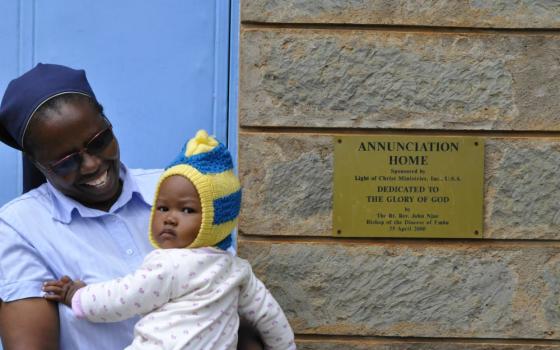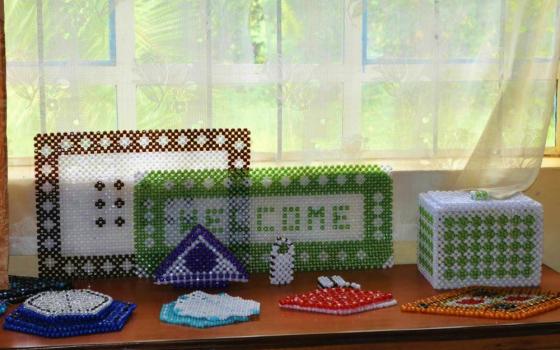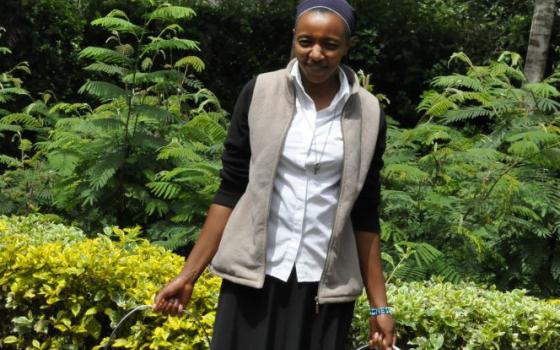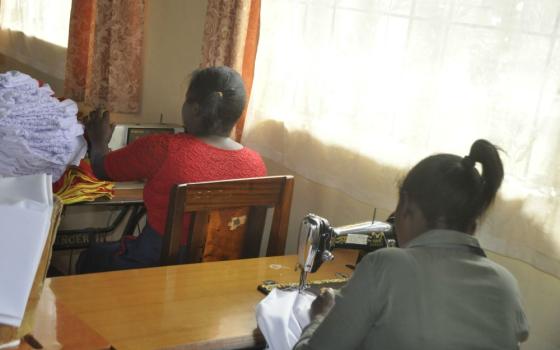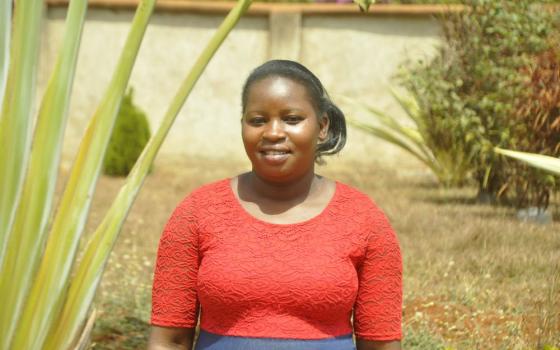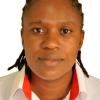On a cold Monday morning, in this town located 75 miles northeast of Nairobi, two teenaged girls sit in a room nursing their children. A baby lies playing on a mattress on the floor at their feet. Her mother, a sixth grade pupil, has gone to school and won't be back until the evening. A fourth girl, who is pregnant, is cleaning up in the kitchen.
This place, the Annunciation Home Crisis Pregnancy Center, established and run by the Sisters of Our Lady of Charity of the Good Shepherd, will be home to these four girls, aged 13, 14, 16 and 19, until the sisters persuade their families to take them back, or find them a safe place to stay.
"These girls are sent to us by different people who come across them," said Sr. Margaret Wangeci of the congregation. "Some get pregnant through defilement and are brought here from the court or by children officers, while some are brought here by people of good will who know we offer the services."
In Kenya, society frowns upon early pregnancy, viewing it as a result of poor upbringing by parents or of teenage promiscuity. Getting pregnant at an early age, therefore, comes with stigma, accompanied by dropping out of school and, at times, rejection from parents, relatives, and the man responsible for the pregnancy.
In this country of nearly 50 million people, almost one in five girls aged 15-19 has already had a baby or is pregnant, according to the 2014 Kenya Demographic and Health Survey. That rate doubles for young women who have reached age 19.
Kenya Teen Pregnancy Fact Sheet by National Catholic Reporter on Scribd
With abortion clinics (some also offering maternal health care) mushrooming all over the country, abortion becomes the easier option for many pregnant girls.
Wangeci said girls who cannot procure abortions and are rejected by their families seek refuge at the center, where they are provided with all the basic needs: proper shelter, food, clothing, social support, counseling, prenatal care, and other medical services.
"When they come to us, we shelter them and we try to find out why they have found themselves without a home at that particular time," she said. "We work case by case, depending on what their issues are, and we do a lot of counseling."
Sr. Agnes Wanyoike, who works at the center with Wangeci, said she was a professional counselor, a crucial skill for working with the girls.
"When they come to the center, most of them don't want the babies," said Wanyoike. "They ask for an abortion. But through counseling they are able to accept the pregnancy and, by the time they deliver, they already have developed a love for the baby."
Mildred, 16, who was leaving the center with her 2-month-old baby, agreed with the sisters, saying she would have procured an abortion after her boyfriend rejected her and her parents chased her away from their home.
"It was heartbreaking when the father of my child denied the pregnancy," said Mildred, who has been staying at the center for almost a year. "I felt I had shamed my parents. I didn't know where to start from or where to go. Someone who knew the sisters and the work they do at the center offered to help and brought me here."
"I am very grateful to the sisters. They gave me shelter, food and guided me to accept my situation," she added, saying that her father has finally accepted her back into the family.
Wangeci, however, noted that, unfortunately, some families refuse to take these girls back, or the sisters realize that they belong to a family whose culture would put the girls' and their babies' lives at risk.
For example, when a girl gets pregnant in the Samburu tribe, her mother and fellow clan women conduct a crude abortion. Anastacia Leparporit, a teacher in the region who understands the community's culture, says an uncircumcised girl is not allowed to give birth and, if she does, the child is an outcast.
The Samburu believe that such a child is a bad omen, especially if it is a baby boy, she said, adding that that the elders consider it is a curse to that family, and that he will take away all the blessings of that home.
"It is hard for the girl and child to be accepted, especially if she got pregnant before being circumcised," said Leparporit, noting that circumcision is an important part of preparing a girl for marriage and it is only done once a suitor has been identified. "The country's law sometimes forces parents to accept the girl with her child, but they end up mistreating them."
Although female genital mutilation (FGM), the modern term for the tribal circumcision practice on girls, has been declared harmful and illegal in Kenya, some communities still consider it a culturally important rite of passage and continue to secretly perform it.
Catholic Sisters in Kenya have been at the forefront of trying to bring an end to the harmful culture with programs such as the Marie Adelaide Center in the Ewuaso Kendong parish northwest of Nairobi, the Immaculate Girls' Rescue Centre in Samburu, and the Termination of Female Genital Mutilation, a project of the Loreto Sisters in Kenya.
The sisters provide alternative rites of passage for the girls that mark transition from childhood to adulthood without suffering mutilation. That includes training in life skills, sexual and reproductive health rights and education, especially on the consequences of FGM. The alternative rite of passage also aims at making the girls peer influencers among their age mates in the fight against FGM.
The Good Shepherd sisters do not directly engage in the fight against FGM, but their charism is centered on caring for women who find themselves in difficult situations.
In cases where a girl is socially ostracized and rejected by family, the Annunciation Home tries to find out who else can support her. If that fails, they have to find a way of settling the girl on her own, said Wanyoike.
"From the guiding and counseling sessions, we get to know the capacity of the girl and know where to place her," she said. "A majority drop out of school because of the pregnancies, so we try to make sure that they go back to school as we organize to take care of the baby."
To cut down on the medical costs, the home makes use of the "Linda Mama" program, a publicly funded health plan that ensures pregnant women and infants have access to quality and affordable health services.
"We thank God for the Linda Mama program because we don't have to pay a lot of money for the deliveries, unless it's a special case or a complicated delivery," said Wangeci.
Wangeci said the center, with the help of the local communities, has been able to support the girls and their children to start a new life after leaving the home.
Aniciah Wanyaga, who is now living in Nairobi and owns a shop that sells clothes, thanked the sisters for supporting her start in business. While she was at the center, the sisters trained her and other girls how to make cards, knit sweaters and plait hair.
"I was taught a lot of things at the center — from taking care of the child to cooking," she said. "I have a business, which is doing very well, and I know how to sew clothes for my customers. Many girls who have left the center are able to do something to earn a living because of the skills they have gained at the center."
"I will still keep in touch with the sisters and also help girls who come to the center," she added. "The encouragement the sisters gave me was very important. Even today, when I meet a pregnant girl who has dropped out of school, I will help her."
Wangeci cautions society against mistreating pregnant girls: "Why should we condemn them to the level that they have practically no one to turn to," she asks.
Some of the girls who come to the center have been thrown out of the house by their angry mothers.
"If you have issues with your girl, please don't throw her out in the night. What do you expect of her and where do you want her to go," she said.
Meanwhile, Wangeci and Wanyoike have vowed to fight abortion, saying that the practice is unbiblical and it's the pregnancy crisis that often pushes young girls to seek abortion.
"The practice must end," said Wangeci. "We are going to help these young girls with counseling throughout the pregnancy crisis. It's traumatizing going through abortion."
[Lourine Oluoch is a freelance journalist based in Nairobi, Kenya.]
